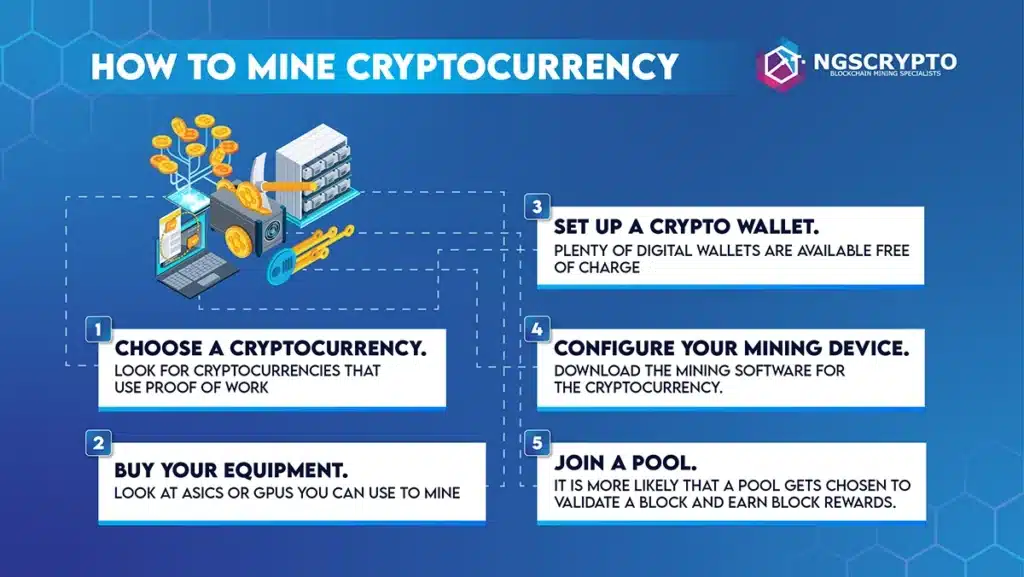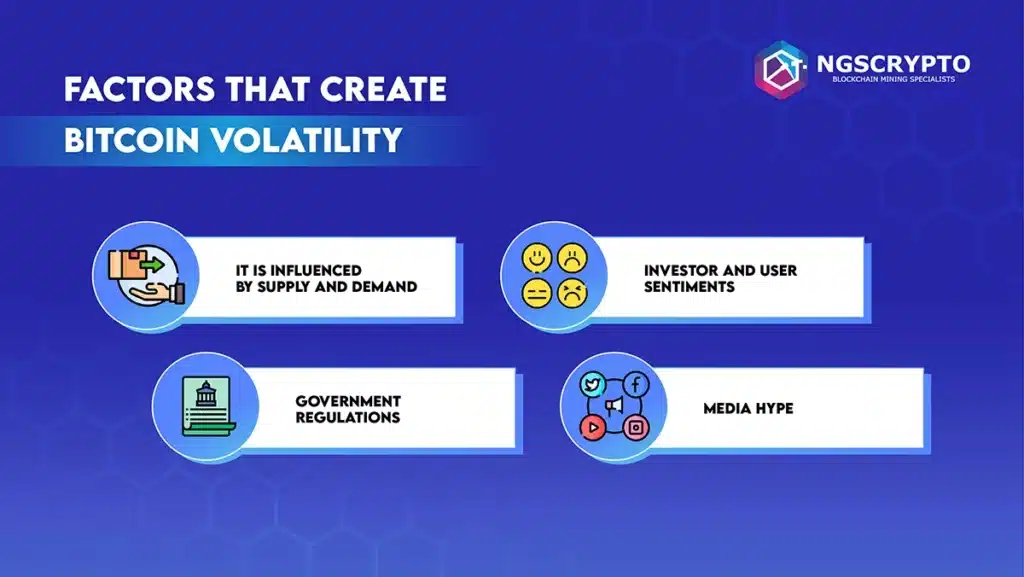NGS Crypto is an Authorised Reseller of NGS Group Blockchain Mining Packages
NGS Crypto is an Authorised Reseller of NGS Group Blockchain Mining Packages


Written by Katya Richardson
Share this article
Australia is known for its rugged beauty and tech-savvy population, which is why it has become a hotspot for crypto enthusiasts and miners. But is crypto mining really worth it in this dynamic landscape? Cryptocurrency mining, once niche, is now a global industry with potential rewards and obstacles.
This article will explore the factors to weigh before diving into crypto mining in Australia. From regulations to environmental impacts, equipment costs to market risks, we’ll give you an Australian perspective to help you decide.
Cryptocurrencies offer financial and tech opportunities as the world goes digital. Yet, crypto mining here has its challenges. Whether you’re a seasoned miner looking to expand operations or a newcomer intrigued by the possibilities, this article will guide you toward understanding if crypto mining in Australia is truly worth the pursuit.
While you’re setting up, it’s essential to decide on the type of mining you want to pursue. Explore the differences between individual, pool, and cloud mining to determine which suits your setup best.
Now, let’s have a look at what are the Technical Requirements you need to consider before starting crypto mining.
There are several types of hardware found in common usage in cryptocurrency mining, each with its significance in the Australian market. First, ASIC miners, prized for their efficiency, stand as a preferred choice for mining Bitcoin and for miners conscious of Australia’s varying electricity costs. Second, GPU miners, lauded for their versatility, prove apt for mining a gamut of cryptocurrencies and adapting to shifting market dynamics.
FPGA miners provide a middle path, offering customizability for less common algorithms or those seeking greater control over hardware. CPU miners, though less prevalent for major cryptocurrencies, maintain relevance for smaller, CPU-friendly coins or experimental initiatives.
Additionally, cloud mining services and mining pools present alternatives to physical hardware ownership, catering to diverse preferences and objectives within Australia’s dynamic crypto-mining landscape.
To understand the mining process in more depth, including how blockchain miners use this hardware, consider reading our comprehensive guide on What Is Blockchain Mining?
Selecting the right software is very crucial. It must align with your hardware, operate seamlessly within your chosen cryptocurrency ecosystem, and be compatible with your computer’s operating system. Consistent updates are also vital for maintaining performance and security. Finally, opt for software that matches your skill level, whether you’re a novice or an experienced miner. Some Example of the best Bitcoin mining software:
Lastly, consider software equipped with monitoring tools and compatibility with mining pools for a seamless experience in Australia’s crypto mining landscape.
Acquiring expertise in blockchain technology before delving into crypto mining is crucial for several key reasons. Firstly, it allows miners to make well-informed decisions based on a thorough understanding of the technology, enabling them to choose the most suitable cryptocurrencies to mine and assess the potential profitability of their operations. Additionally, a solid grasp of blockchain’s inner workings is indispensable for configuring and maintaining mining equipment, as well as troubleshooting technical issues that may arise during the mining process.
Secondly, expertise in blockchain technology provides miners with a higher level of security and risk management, equipping them with the knowledge needed to protect their operations from potential risks, including cyberattacks and market volatility, as well as adapt to evolving developments like protocol upgrades and forks, which can significantly impact their mining activities. In essence, this expertise acts as a critical foundation for a successful and sustainable crypto-mining venture, enhancing miners’ ability to navigate the dynamic and intricate world of cryptocurrencies.

After we’ve had a discussion about the technical requirements, it’s time to move into the financial aspects of crypto mining. Here is the list that you need to consider:
The upfront costs of establishing a mining operation are necessary to kickstart cryptocurrency mining activities. These expenditures encompass acquiring specialized mining hardware like ASIC miners or GPUs, securing an appropriate location with adequate infrastructure, addressing electricity expenses that vary by region, managing ongoing maintenance and operational costs, and ensuring compliance with regulatory requirements.
Additionally, miners must budget for security measures, insurance, and initial reserves of the cryptocurrency they intend to mine. These expenses, subject to variations based on factors like operational scale and chosen cryptocurrency, necessitate careful financial planning and budgeting before commencing a mining venture in Australia.
In cypro mining you should anticipate several operational costs. Foremost among these are electricity expenses, which can vary significantly across the country. Maintenance costs are another aspect, covering hardware repairs, routine upkeep, and replacement parts to ensure mining rigs function optimally. Given Australia’s climate, cooling costs are notable, encompassing cooling systems and ventilation to combat overheating.
Miners should also consider insurance costs for equipment protection, as well as internet and connectivity expenses to maintain reliable, high-speed access. Joining mining pools may entail fees, and regulatory compliance and tax obligations could incur additional costs. Lastly, miscellaneous expenses, including software licenses and unforeseen operational costs, should also be factored in for a comprehensive understanding of the financial landscape in Australian cryptocurrency mining.
In the world of cryptocurrency mining, predicting returns can be a bit of a rollercoaster due to the market’s ups and downs. It’s crucial to be smart about risks by diversifying and setting limits. Take a good look at how the cryptocurrency has performed in the past and how the mining difficulty can change. Balance the costs of electricity and maintenance with what you expect to earn.
Think about whether you’re in it for the short-term gains or a long-term strategy, and keep a close eye on market trends and any regulations that could shake up cryptocurrency prices and, of course, your overall returns. You can also make use of ROI calculators to help give you an estimate of potential earnings in this ever-changing world of mining.
The regulatory and taxation framework in Australia significantly influences the profitability of cryptocurrency mining. The Australian Taxation Office (ATO) has laid out clear guidelines regarding the taxation of income derived from digital assets, including mining activities. These taxation obligations can impact your mining profitability, reducing the profits you’ve worked hard to earn. Below, you’ll find a summary of the tax rates applicable to residents for income earned through crypto mining.
Australia Resident Tax Rates 2023-2024
| Income Thresholds | Rate | Tax Payable on This Income |
| 0 – $18,200 | 0% | Nil |
| $18,201 – $45,000 | 19% | 19 cents for each $1 over $18,200 |
| $45,001 – $120,000 | 32.5% | $5,092 plus 32.5 cents for each $1 over $45,000 |
| $120,001 – $180,000 | 37% | $29,467 plus 37 cents for each $1 over $120,000 |
| $18,001 – and over | 45% | $51,667 plus 45 cents for each $1 over $180,000 |
Now let’s explore the location elements influencing cryptocurrency mining in Australia and how these factors affect mining profitability and feasibility.
The success of cryptocurrency mining in Australia is heavily influenced by the cost of energy. Mining demands a significant amount of electricity to operate the mining equipment continuously. In Australia, the average annual electricity price per kilowatt-hour (kWh) for industrial consumers in 2022 was approximately AUD 0.58 depending on your state. These electricity rates are above the national average and can substantially eat into the expenses incurred by crypto miners. Reduced electricity rates can have a substantial impact on the profitability of mining operations.
Australia is renowned for its scorching temperatures, boasting annual average mercury readings spanning from 15°C to 25°C, as reported by the Bureau of Meteorology. In the summer season, it’s not uncommon for the thermometer to climb past the 30°C mark. When it comes to crypto mining Down Under, these soaring temperatures could potentially trigger overheating problems for mining equipment, potentially resulting in a decline in hardware efficiency and longevity.
A study conducted by Puget Systems unveiled a direct correlation between external (ambient) temperatures and internal PC temperatures. The research demonstrated that, during idle periods, the CPU temperature rises by 1°C for every corresponding increase in external temperature. This observation remained consistent even when the CPU was under load.
As a result, it becomes imperative to invest in effective cooling solutions for mining operations in Australia. These systems can escalate the overall mining expenses and add an additional financial burden.
As cryptocurrency miners, it’s crucial for us to stay informed about the regulatory landscape in Australia and its impact on our operations. It’s legal to trade, receive, spend, and hold cryptocurrencies in Australia, but it’s worth noting that merchants are not obligated to accept digital currencies.
Currently, the cryptocurrency landscape is favourable for miners, especially with the high demand for popular cryptocurrencies like BTC. However, it’s important to recognize that if government regulations become more stringent, miners could be the first to feel the effects. Tighter regulations might lead to a drop in cryptocurrency prices, which in turn could reduce mining revenues.
Wondering about the legal side of crypto mining in Australia? Find out more in our article on Is Crypto Mining Illegal in Australia?.
As a potential miner, you should also be aware of the risks and challenges associated with mining cryptocurrency in Australia. Here are the risk factors of crypto mining:
The volatile crypto market can significantly impact your mining profits. Cryptocurrency prices can fluctuate wildly, and if the coins you’re mining plummet in value swiftly, your profits can take a steep dive. When many miners join the fray during prosperous times, it toughens the competition, reducing your potential rewards.
The market sentiment, regulations, and even your mining pool rewards can be thrown into disarray by the crypto market’s unpredictable nature. To navigate these challenges, miners often employ savvy strategies like diversifying their mining efforts and closely monitoring market trends. So, if you’re planning into crypto mining, brace yourself for a rollercoaster ride and ensure you’re well-prepared for the market’s ups and downs.

In the fast-changing world of technology, hardware can quickly become outdated, a concern that’s relevant in Australia too. As technology evolves, older hardware may struggle to keep up with new software and demands, leading to slower performance. Some devices can’t easily be upgraded, and staying current can be costly. Plus, disposing of old hardware can harm the environment.
To tackle this, Aussies can stay informed, plan their tech purchases wisely, choose devices that allow for upgrades, consider extended warranties, use cloud-based solutions when possible, keep their hardware in good shape, and recycle old devices responsibly.
With the cryptocurrency industry’s rapid growth, various fraudulent schemes and scams have emerged, putting investors and miners at risk. Protecting your assets involves diligent research when choosing mining hardware, opting for trusted mining pools, and using secure wallets for storing mined assets. Equally vital is safeguarding personal information and being cautious about unsolicited offers or suspicious communications.
Staying informed about common scam tactics, adopting strong security practices, and remaining vigilant are all essential measures to protect your investments and navigate the evolving crypto landscape safely.
The rising mining difficulty in Australian cryptocurrency mining, driven by more participants, hits miners hard. They need beefier hardware like ASIC miners, which means higher upfront costs and ongoing power bills. With slimmer chances of mining new blocks and earning rewards, profits shrink, and costs rise. Some join mining pools for strength in numbers, but even there, rewards can dwindle due to the challenge. This scenario underscores the need for constant equipment upgrades and careful cost management as miners navigate the ever-changing landscape of cryptocurrency mining Down Under.
Understanding the risks in cloud mining or mining pools is vital for anyone looking into these options in Australian cryptocurrency mining. Cloud mining means giving control of mining hardware to others, which can reduce profits due to fees and maintenance costs. In mining pools, you share rewards with the pool operator and depend on their infrastructure, posing security and stability concerns. Scams in cloud mining highlight the need for careful provider selection. Joining mining pools may also affect privacy and contribute to cryptocurrency network centralization. So, consider the pros and cons carefully when choosing your mining method in the changing crypto scene in Australia.
The time required for maintenance, monitoring, and updates in crypto mining is a crucial consideration. It encompasses regular hardware upkeep and software updates, essential for maintaining efficiency and security, typically occurring on a monthly or quarterly basis. Continuous monitoring is equally vital, necessitating round-the-clock attention to detect hardware issues, network disruptions, or shifts in mining difficulty. Larger mining operations often require 24/7 vigilance.
Moreover, miners must be prepared for potential changes in mining algorithms, which may demand swift software and hardware adjustments. In summary, the time commitment for maintenance, monitoring, and updates varies but is fundamental to sustaining a successful and profitable crypto-mining endeavour.
As we’ve explored the multitude of factors in this article, the decision to engage in crypto mining in Australia is a matter of nuanced consideration. From adhering to regulations and environmental sustainability to making substantial equipment investments and navigating market volatility, prospective miners must carefully weigh these elements against the potential rewards.
Ultimately, whether it’s worthwhile to mine crypto in Australia hinges on a complex blend of factors, unique to each individual or organization. It’s a path that demands in-depth research, meticulous planning, and the ability to adapt to the ever-evolving crypto landscape.
As Australia continues to play a pivotal role in the digital asset world, those embarking on this journey must do so with their eyes wide open, recognizing that their path to success rests on a comprehensive assessment of all the factors involved.
The information presented on this website is general information only. It should not be taken as constituting professional advice from the website owner – NGS Crypto PTY LTD (NGS Crypto). Any information regarding past performance and returns contained on this website should not be construed or interpreted as a prediction or opinion as to future performance and returns. NGS Crypto is not a financial adviser. All views and observations expressed by NGS Crypto on this website are for information purposes only, are general in nature and should not be treated as investment or financial advice of any kind.
NGS Crypto is an authorised reseller of NGS Group blockchain mining packages. The information presented on this website (https://ngscrypto.com) is general information only. It should not be taken as constituting professional advice from the website owner – NGS Crypto PTY LTD (NGS Crypto). Any information regarding past performance and returns contained on this website should not be construed or interpreted as a prediction or opinion as to future performance and returns. NGS Crypto is not a financial adviser. All views and observations expressed by NGS Crypto on this website are for information purposes only, are general in nature and should not be treated as investment or financial advice of any kind. Before making an investment in crypto assets, you should consider seeking independent legal, financial, taxation or other such professional advice to check how the information on this website relates to your unique circumstances. NGS Crypto is not liable for any loss caused, whether due to negligence or otherwise arising from the use of, or reliance on, the information provided directly or indirectly, by use of this website. You can view our full terms & conditions by clicking here.
NGS Crypto is not affiliated, associated, authorized, endorsed by, or in any way officially connected with this NGS Super (ABN 73 549 180 515).
© 2024 NGS Crypto
NGS Crypto is an Authorised Reseller of NGS Group
| Cookie | Duration | Description |
|---|---|---|
| cookielawinfo-checkbox-analytics | 11 months | This cookie is set by GDPR Cookie Consent plugin. The cookie is used to store the user consent for the cookies in the category "Analytics". |
| cookielawinfo-checkbox-functional | 11 months | The cookie is set by GDPR cookie consent to record the user consent for the cookies in the category "Functional". |
| cookielawinfo-checkbox-necessary | 11 months | This cookie is set by GDPR Cookie Consent plugin. The cookies is used to store the user consent for the cookies in the category "Necessary". |
| cookielawinfo-checkbox-others | 11 months | This cookie is set by GDPR Cookie Consent plugin. The cookie is used to store the user consent for the cookies in the category "Other. |
| cookielawinfo-checkbox-performance | 11 months | This cookie is set by GDPR Cookie Consent plugin. The cookie is used to store the user consent for the cookies in the category "Performance". |
| viewed_cookie_policy | 11 months | The cookie is set by the GDPR Cookie Consent plugin and is used to store whether or not user has consented to the use of cookies. It does not store any personal data. |